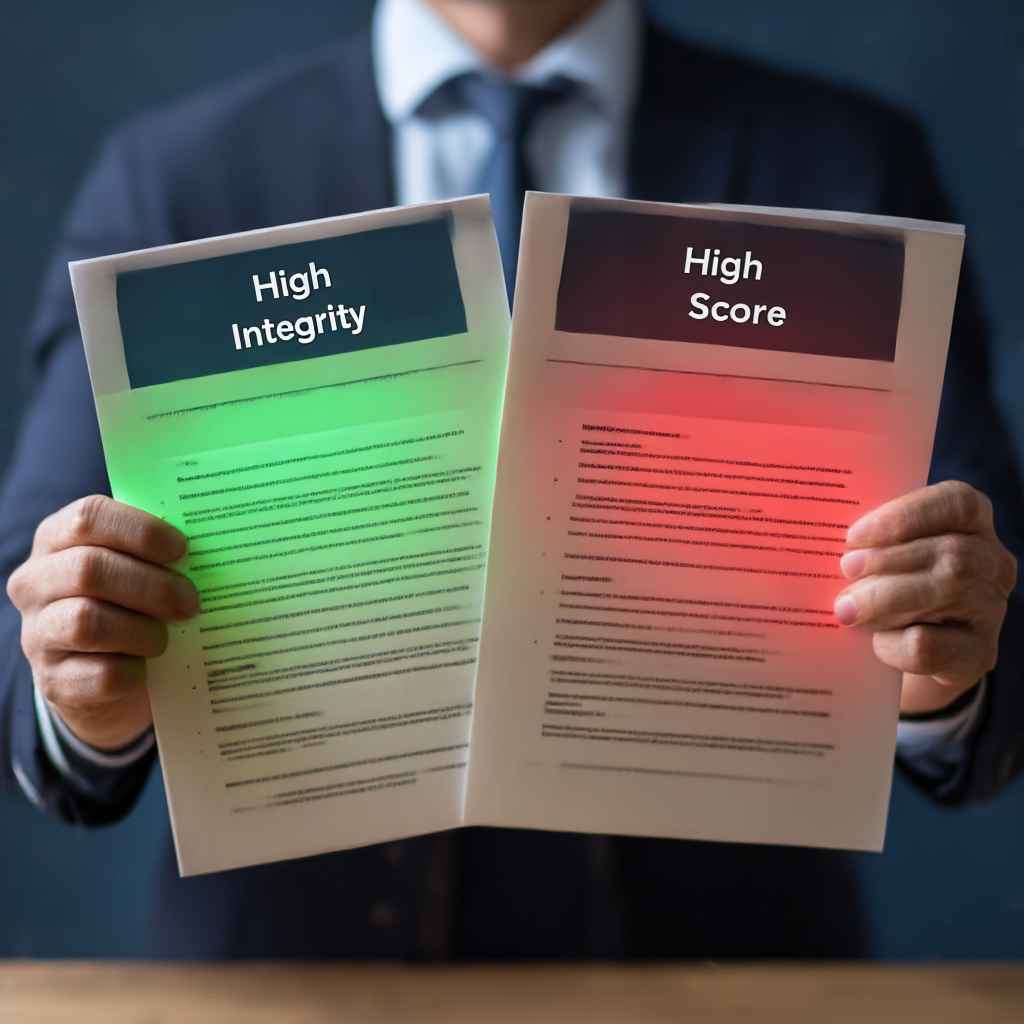Content
Let’s be real: hiring the wrong person isn’t just a bad day at the office—it can be a costly mistake. When a new hire turns out to be dishonest, unreliable, or toxic, it drains your team, damages morale, and hits your bottom line hard.
That’s why more companies are turning to a powerful but often underused tool: the pre-employment integrity test.
Think of it as your early warning system. A way to see beneath the polished resume and smooth interview answers—and get to the heart of who a candidate really is.
In this guide, we’ll walk through exactly what integrity tests for employment are, how they work, what they measure, and how to use them effectively.
What Is a Pre-Employment Integrity Test?
A pre-employment integrity test is a structured assessment designed to evaluate whether a candidate is likely to act honestly, responsibly, and ethically in the workplace.
These tests go beyond qualifications. They assess character—and that can make all the difference.
There are two main types:
| Test Type | Description | Example Questions |
| Overt Integrity Tests | Ask direct questions about ethics and behavior | “Have you ever taken something that didn’t belong to you at work?” |
| Personality-Based Integrity Tests | Measure traits linked to honesty and accountability | “I always finish tasks even when no one is watching.” (Agree/Disagree) |
Some employers also use covert integrity tests, which blend in with personality assessments to detect red flags subtly. Learn more about this in our guide on What Is a Covert Integrity Test?
Why Use an Integrity Test for Employment?

Hiring for integrity isn’t just about avoiding theft or fraud (though that matters too). It’s about creating a culture of trust, responsibility, and positive collaboration.
Benefits of Pre-Employment Integrity Tests
Supports Fair Hiring — Tests add objectivity and consistency to your process, which aligns with fair hiring practices that promote equitable treatment and reduce bias in recruitment.
| Benefit | Why It Matters |
| Reduces Risky Hires | Weed out candidates likely to lie, blame others, or cause conflict |
| Protects Company Culture | Maintain a high-trust, accountable team |
| Improves Retention | Employees who align with your values tend to stay longer |
| Supports Fair Hiring | Tests add objectivity and consistency to your process |
| Saves Time | Filter out red flags early and focus interviews on top candidates |
As we discuss in Honest Hiring: Why Integrity and Work Ethics Tests Are Non-Negotiable, integrity is the backbone of a high-performing workplace—and worth prioritizing.
What Do Integrity Tests Measure?
While the format may vary, most integrity assessments focus on a few key behavioral dimensions.
| Dimension | What It Evaluates | Why It Matters |
| Integrity | Honesty, rule-following, ethics | Prevents fraud, dishonesty, and workplace drama |
| Accountability | Ownership of actions, willingness to admit mistakes | Improves trust and team dynamics |
| Positivity | Attitude toward teamwork, optimism | Boosts morale and engagement |
| Responsibility | Reliability, follow-through, self-regulation | Supports consistent performance and fewer errors |
If you want to see how this looks in action, our Integrity & Attitude Test breaks it down beautifully.
Our Favorite Tool: The Positivity & Integrity Assessment Test

Looking for a reliable way to test integrity at scale—without overloading your hiring process?
We recommend the Positivity & Integrity Assessment Test. It’s fast, science-backed, and incredibly practical.
Quick Overview
| Feature | Detail |
| Duration | ~10 minutes |
| Format | 10 behavioral & situational questions |
| Results | Instant, easy-to-read summaries |
| Languages | English and Spanish |
| Best For | Roles that require trust, accountability, and collaboration |
This test evaluates a candidate’s likely behavior on the job—like whether they take ownership of mistakes, act ethically under pressure, or contribute positively to the team.
And it only takes 10 minutes. Really.
Book a demo to try it for free
When Should You Use an Integrity Test?
Ideally, integrity testing should happen early in the hiring process—after the resume screen but before the interview.
Best Timing:
- After initial qualifications check
- Before investing time in interviews
- During high-volume screening phases
- For roles with high responsibility or public interaction
And if you’re not sure whether the role needs this? Ask yourself: Would dishonesty, blame-shifting, or poor judgment create serious problems here?
If the answer is yes, it’s worth testing.
How to Use Integrity Test Results in Hiring

Testing is just the first step. The real power comes from combining test results with structured interviews and reference checks.
As shown in How to Test Integrity in Interviews, you can use test insights to guide deeper follow-up questions and validate behavior.
Here’s how to apply results:
| Step | Action |
| 1. Review | Look for strengths and red flags in the test report |
| 2. Confirm | Ask behavioral interview questions to explore those traits |
| 3. Decide | Use all data (test + interview + reference) for a confident decision |
Not Sure What to Ask? We’ve Got You Covered
If you’re building your own integrity screening process, check out these resources for inspiration:
- Sample Integrity Test Questions Employers Can Use
- What Is an Overt Integrity Test and How You Can Use It as an Employer
- Personality-Based Integrity Tests: How They Work
- Integrity Assessment Questionnaire for Pre-Employment Screening
- What Is an Integrity Test and Why It Matters in Hiring
FAQ: Pre-Employment Integrity Tests
1. Are integrity tests legal?
Yes, as long as they’re job-related, consistent across candidates, and non-discriminatory.
2. Can candidates fake their way through?
Well-designed tests (like the Positivity & Integrity Test) include built-in checks for social desirability and inconsistency.
3. How long do these tests take?
Most are quick. Ours takes just 10 minutes and provides instant insights.
4. Can I use these tests for leadership roles?
Absolutely. In fact, leadership roles benefit most from integrity screening because the stakes—and influence—are higher.
5. Are these tests useful in high-volume hiring?
Yes. That’s where they shine. You can screen dozens or hundreds of applicants with minimal time investment.
Final Thoughts: Integrity Is the Smartest Skill to Hire For
You can teach skills. You can’t teach someone to be honest, take responsibility, or respect others.
A strong pre-employment integrity test helps you hire people who do the right thing—especially when no one’s looking. And that’s what builds great teams.
If you’re ready to make integrity a standard—not a gamble—try our Integrity & Attitude Test today.
Book a demo and start building a stronger, more trustworthy workforce.
